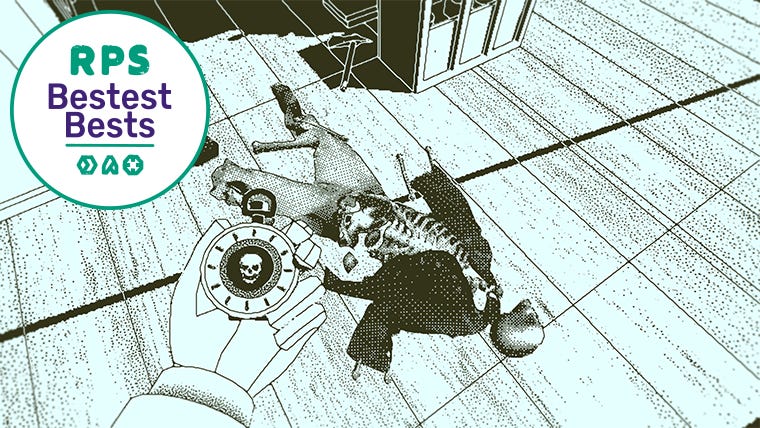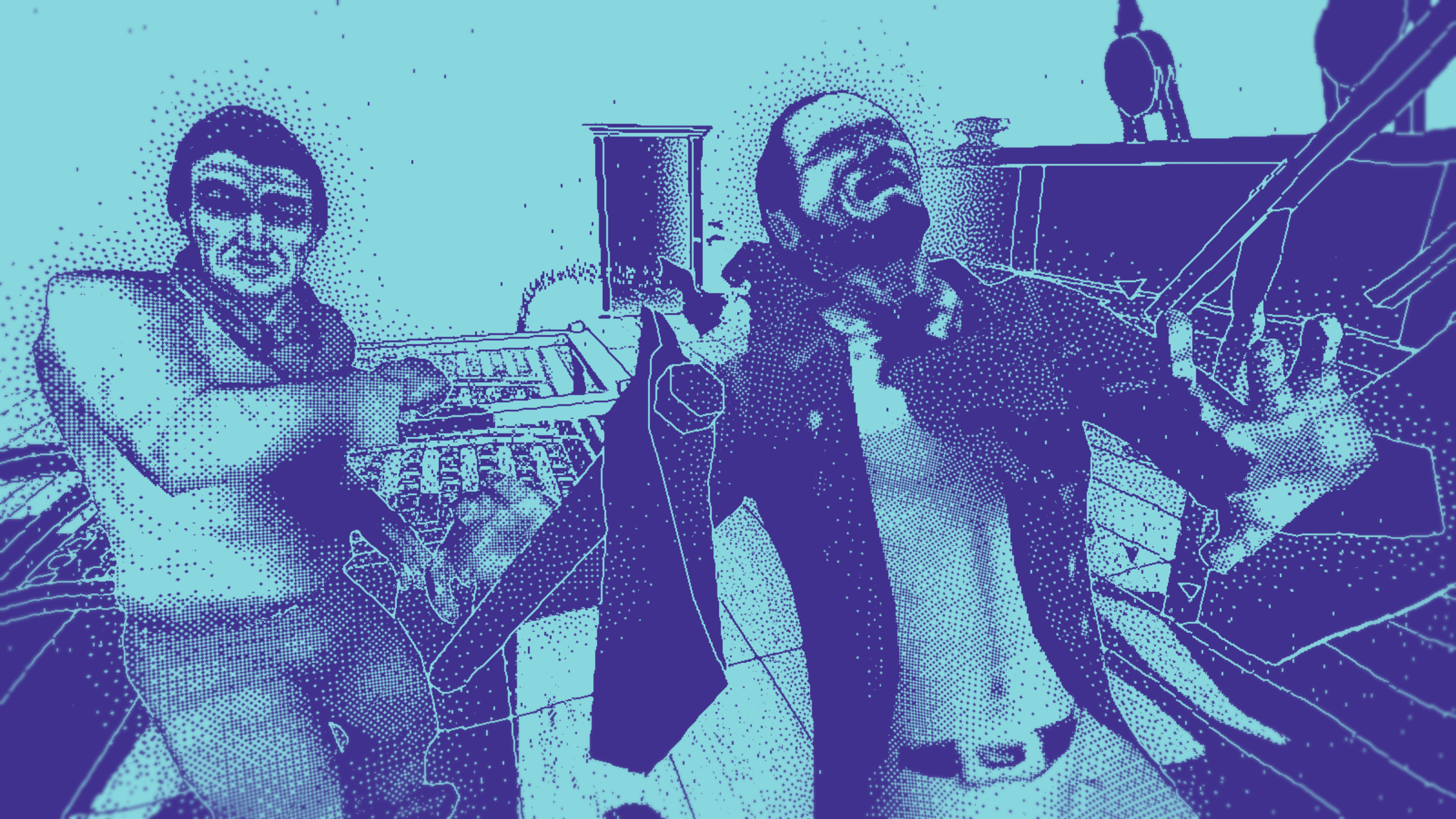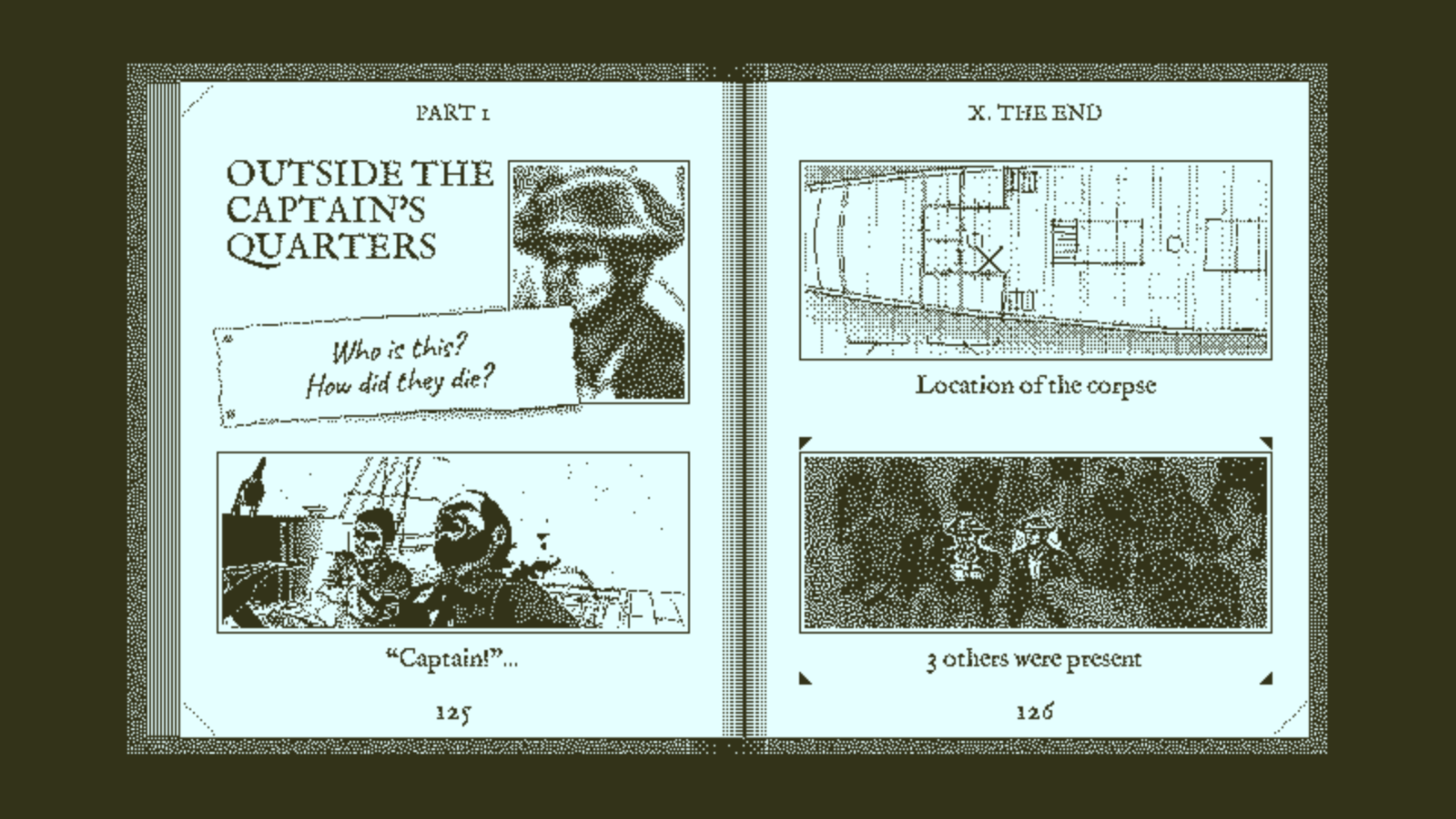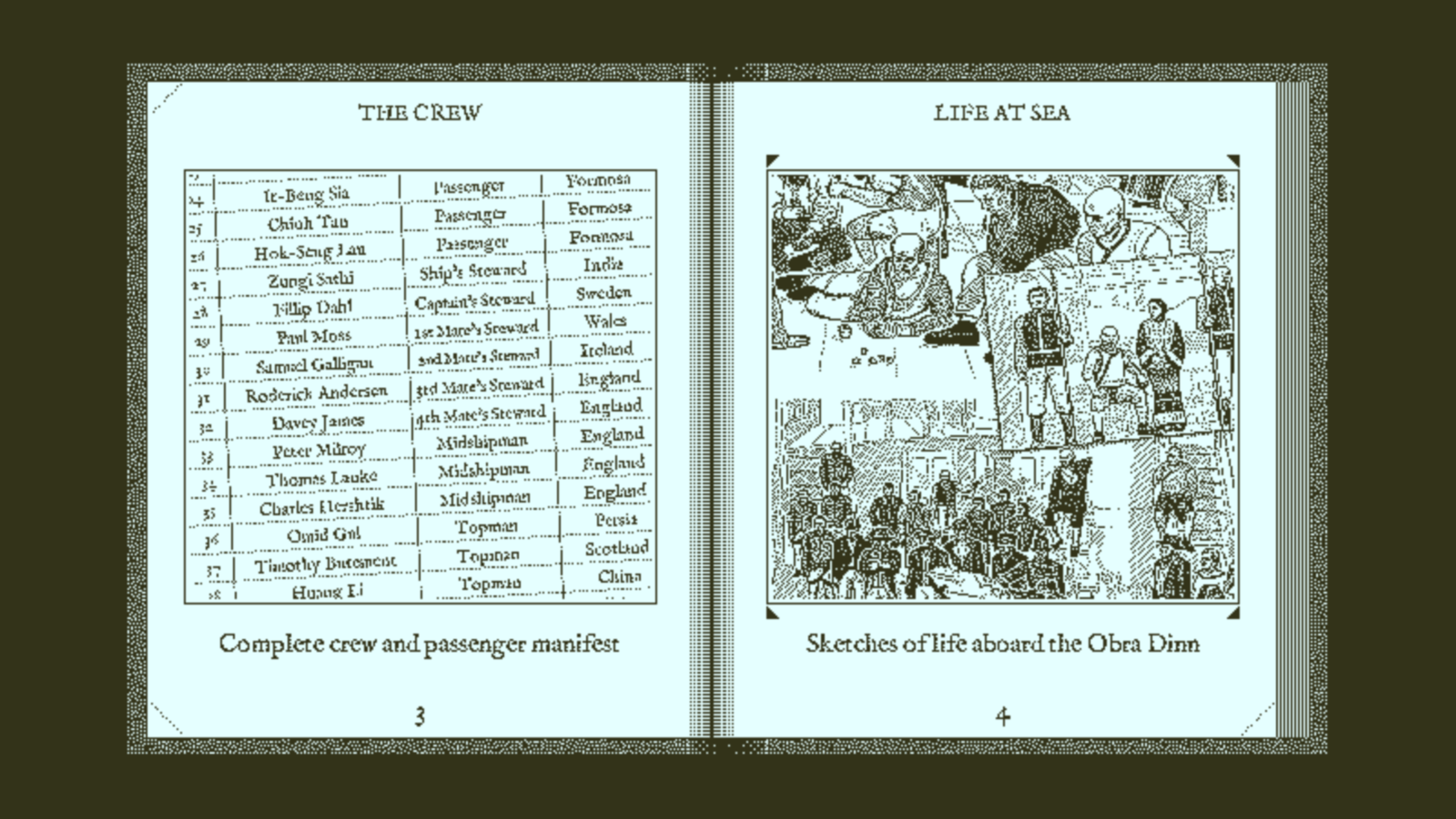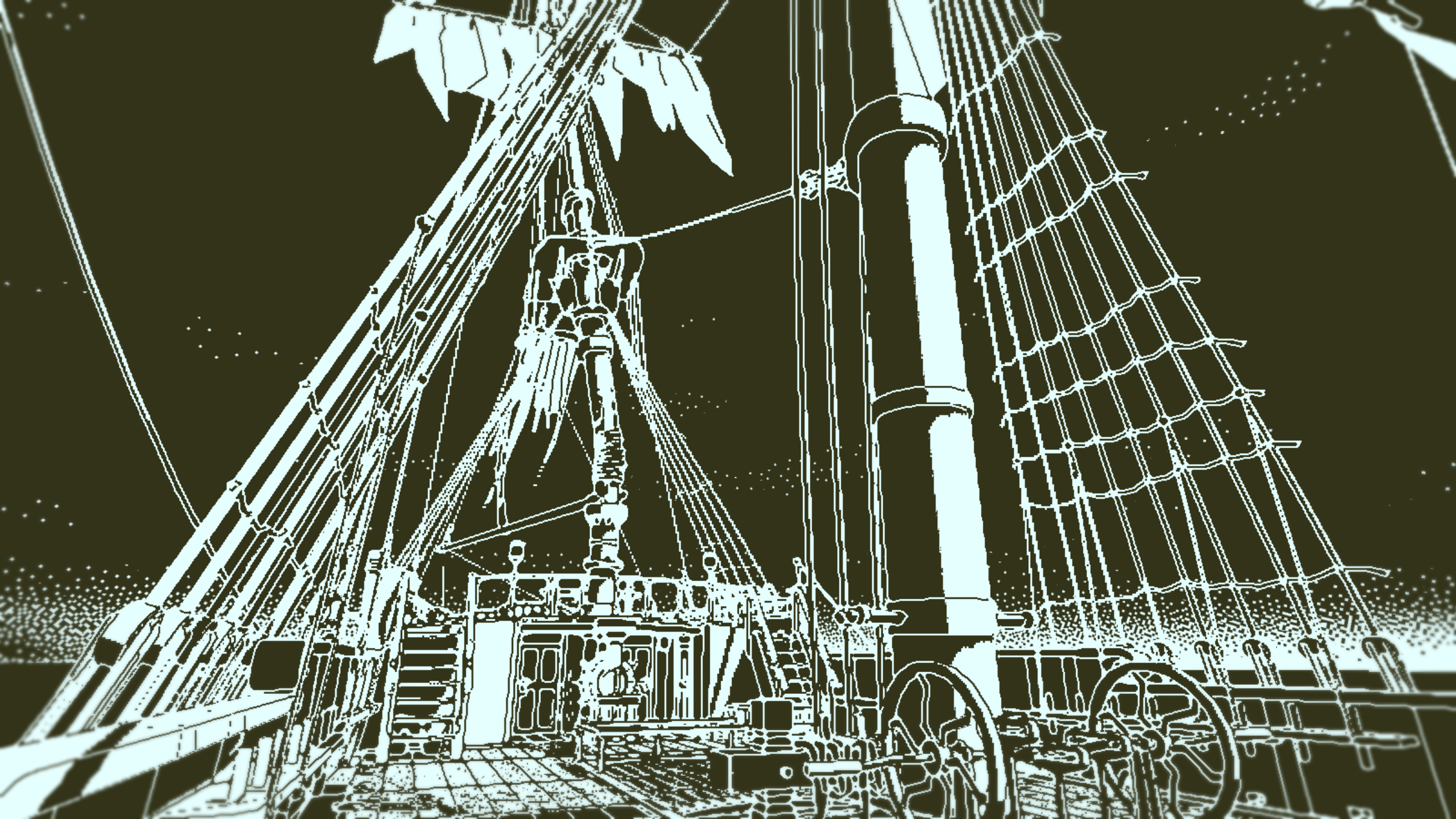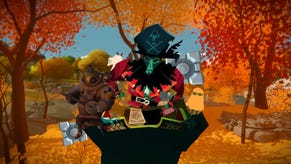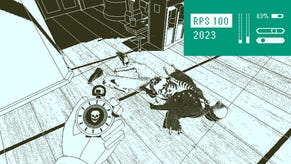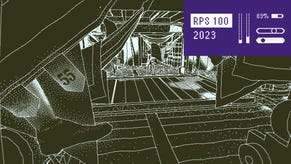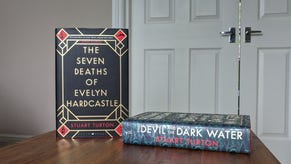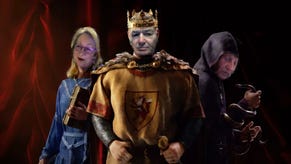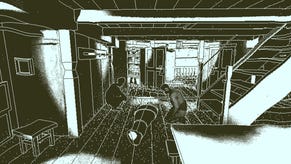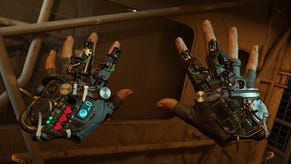Wot I Think: Return of the Obra Dinn
Worse things happen at sea
Return of the Obra Dinn is a terrible advert for sea travel and a great recruitment tool for the insurance industry. A boat arrives in port, absent a living crew and with too few remains to represent the 60 passengers in the ship’s log. You’re an investigator who has to fill in the gaps by studying this vaguest of crime scenes. I always thought insurance claims to be unsexy work, largely about pursing lips and frowning at nervous people in plaster casts. How wrong I was. Turns out they have magic watches that let them revisit moments of death. I can’t believe career advisors fail to mention this. The watch even has a picture of a skull on it. Teenagers love that shit.
The final piece of the puzzle is the log itself: a list of names, nationalities and professions, a plan of the ship, and some sketches of the crew dancing, gambling and hanging someone. These were the only three forms of entertainment in 1807. The task, then, is to connect the names (without faces) to the bodies (some without faces or heads or throats or other vital parts) and deduce their fates. As an avid reader of classic crime fiction I was well prepared to play Obra Dinn as a sixty corpse whodunnit; to my surprise it’s as much a whatwasdun and whowasitdunto.
Say the magic watch shows you a man being stabbed. The how is obvious enough, and so begins the hunt for the whos. Does either’s outfit suggest a role on the ship? Does the map explain which characters should be in that location? What about the sound? Each flashback begins with an audio snippet of the seconds before death. Perhaps it reveals a hint of an accent in their terse exchange - maybe you’ll strike gold and one will name the other. I can’t oversell how exciting it is when someone accidentally drops a name: it’s like hitting the big one in Guess Who and flipping 95% of the tiles at once. Well, it is until you look around the cabin and see 12 other sailors talking. You can’t guarantee you heard the perpetrator.
The stabbing’s theoretical, of course. To reveal specific deaths is to rob Obra Dinn of great drama. After a handful of mundane crimes to teach you the ropes you’re dropped into a scene of such nautical horror that you realise just what a struggle awaits you. Many of the bodies are so violently damaged they don’t exist as physical remains in present day, their fates revealed by finding their bodies in other people’s flashbacks. At first this is overwhelming, like you’re being bullied away from crime scenes you want to probe. But go with the flow and you drill into the history of key disasters, leapfrogging between corpses to establish a timeline of a salt-encrusted shitshow. Soon you long for the pleasantness of an old-fashioned stabbing.
All this carnage is rendered in a monochrome dithering style - an affectionate nod to the early Macintosh. Or, if you wish, the IBM 5151, Commodore 1084 or Zenith ZVM 1240 - you can choose which in the options, casting the bloodbaths in sickly orange or mauve hues. Whatever your chosen look, it somehow manages to be both impossible to pin down and just as graphic as any game I’ve played. An exploding head frozen in time is grim at the best of times, but the shimmering dot construction adds a visual grit. It looks like bone fragments. Or dirt. Or actual germs. Applied to ship-wide calamities and I’ve never seen chaos this perfectly depicted.
But I don’t think I’ve seen the solution to chaos handled this well, either. The solving of mysteries is as simple as naming a victim and a perp and picking the demise from a list of verbs. Just scanning this list at the start is a bleak giggle as you realise how many horrible words can happen to the human body. You can tentatively enter information, but correct answers are only verified in trios. You can’t just spam answers and hope to get lucky.
But why would you want to? What Lucas Pope has built here is the world’s largest logic grid puzzle. You know, like Dishonored 2’s Jindosh Lock riddle; the thing where you have so-and-so who doesn’t eat cake on Thursdays so what colour is their hat? Only here there are 60 so-and-sos, and you’ve no idea about cake preferences. So begins vast cross-referencing: comparing what you hear with what you see, what you see with what you read and what happens now with what happened then. Try and force it, skip ahead, and you won’t lay down the foundations to understand even knottier crimes deeper in the game.
I’m staggered by how clever it is. I’ve played every detective game going and never seen someone capture the thrill of deduction as this does. I’ve tracked the source of a murder through the background events of previous crimes, like an insane timecop. I’ve had a single word flip my entire perception of a scene, like Gene Hackman’s startling revelation in The Conversation. During one late, late night I systematically rewatched the entire onboard history of each member of a lifeboat crew until I had eliminated the impossible and whatever remained, however improbable, was the truth.
I think it comes down to remarkable planning, and not a small dose of faith on Pope’s part. The limitations of detective games tend to stem from a nervousness around losing people. Designers insist you have the vital clue in your inventory, or they create scenarios so lacking in scope that you’re funnelled to the revelation. I'm thinking of stuff like Ace Attorney where you’d lose cases by presenting incontrovertible evidence before the story deigned to allow it. In Obra Dinn, information gushes in like your head was a cracked hull, and you’re free to sink or swim. When you find a foothold it feels entirely your own. It helps there are 60 crimes, too - it would take a real dunce to somehow miss at least one solution in 60.
How Pope managed to keep track of information across time and space (however limited it is by Obra Dinn’s four decks) I cannot fathom. Hey, that’s totally something RPS should try to find out. I look forward to reading that article. I do wish he’d been able to squeeze in a note system - as much as I like the role-play of jotting on post-its, it would be handy to attach facts to the crew sketch, say. There’s also one crime scene that, for spoilery reasons, is harder to get to, forcing a tiresome trip through multiple flashbacks when you want to check simple facts. Mega nitpicky: is ‘falling overboard’ or ‘drowning’ a correct cause of death? Because what happens once you fall overboard? That I’ve had this argument with friends shows the bizarre places Obra Dinn takes us.
I was trying to find a pithy crime fiction analogy to wrap this up, but what Pope’s done here actually transcends gags a bit. Before playing I’d grown bored of the plodding progress of traditional whodunits, recently switching to locked room mysteries and Japanese crime fiction, where the ingenuity of the crime is celebrated. It’s more like unpicking a magic trick (I’m happy to suggest some to anyone who is willing to listen). There’s no theatrical villainy in Obra Dinn - although vanishing a crew of 60 has that ring to it - and it has reignited my interest in the old ways with its tales of social tension, human tragedies and crimes of passion.
I want to call it the reverse Agatha Christie (also my favourite skateboarding trick). Her stories are about teasing the circumstances of a death from the polite society around it. Obra Dinn asks you to tease out social lives from a freeze frame of murder. It doesn’t take the little grey cells to realise this is remarkable stuff.
